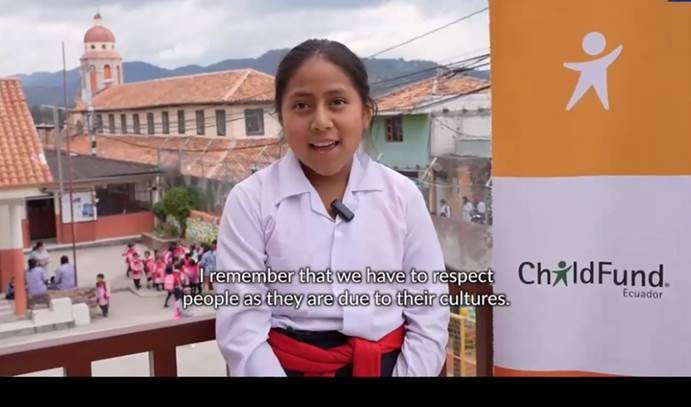
12th February 2024, CSocD62 Virtual Side Event hosted by ChildFund Alliance and co-sponsored by the Permanent Missions of the Republic of Poland and Germany to the United Nations, explored impactful outcomes of ChildFund projects, and efforts by Poland and Germany, to empower migrant and refugee communities through education, caregiving, and strengthened social cohesion.
The event featured remarks from children who have participated in ChildFund Alliance member projects, From Displacement to Integration: Building Productive and Protective Communities and Come Play with Me. The young participants recounted how their lives and those of their families and communities have been positively changed as a result of their participation in the ChildFund programs. Representatives from ChildFund Alliance and partner stakeholders involved in the projects’ realization – UNOPS (Veronika Talviste Hershkowitz, Forced Displacement Senior Advisor) and the LEGO Foundation (Andrea Hernández, Inclusion Advisor Specialist) – also contributed to the discussion.
The session opened with remarks by H.E. Mr. Krzysztof Maria Szczerski, Ambassador Extraordinary and Plenipotentiary, Permanent Representative of the Republic of Poland to the United Nations. Ambassador Szczerski spoke of the endeavors of Poland, the initiator of the UN Convention on the Rights of the Child, to provide social benefits and educational opportunities to Ukrainian refugee children. The Polish government is also helping displaced children with caregiving and poverty alleviation, as well as fostering children’s integration into Polish society via digital means.
Mr. Frank Jarasch, ECOSOC Ambassador, Head of the Economic Section, Permanent Mission of Germany to the United Nations, also provided opening remarks. Ambassador Jarasch recounted Germany’s efforts to integrate refugee children and unaccompanied minors into German society, particularly through Germany’s Youth Migration Services that support children with social, educational and linguistic integration. Furthermore, the German government has been offering crucial “early help” to children and their families, such as counseling services upon arrival and child-friendly accommodation for refugees, including children with special needs.
Through the subsequent reflection on ChildFund’s From Displacement to Integration: Building Productive and Protective Communities, the program highlighted key achievements on inclusive education and pedagogical strategies, economic empowerment, inclusive service delivery, and strengthened protection systems – with a focus on digital education and online teaching for Venezuelan migrants in Peru and Ecuador.
A brief presentation of ChildFund’s Come Play with Me project showcased how it successfully enhanced caregiving practices and fostered playful interactions between parents and their children within Indigenous communities. It also highlighted efforts to encourage both communities and governments to embrace early childhood model practices, thus creating a widespread positive impact on child development. Importantly, the presentation demonstrated how ChildFund makes use of strategic digital platforms that allowed us to bridge gaps and deliver valuable parenting insights to communities who are traditionally hard to reach.
The event closed with a discussion that showcased additional details and the impact both programs have had on the lives of children, their families and communities—highlighting the continued importance of breaking barriers, fostering social justice, and strengthening resilience to empower migrant and refugee communities.
For more information about the 62nd Commission for Social Development (CSocD62), please visit: https://social.desa.un.org/csocd/62nd.
Source: ChildFund Alliance
 Welcome to the United Nations
Welcome to the United Nations